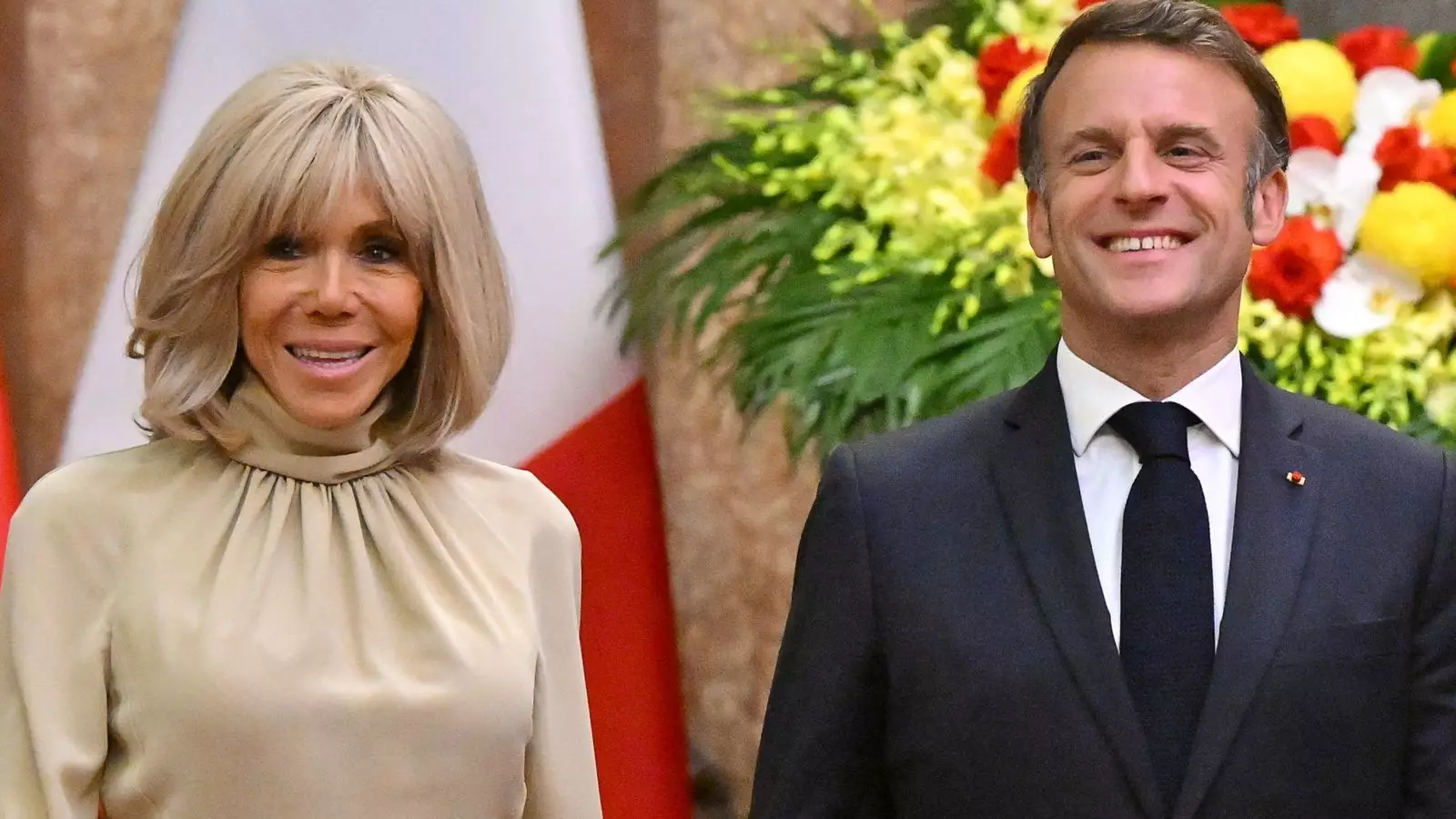The decision to host French President Emmanuel Macron’s state visit at Windsor Castle instead of the traditional Buckingham Palace signifies more than just a change in venue; it signals a strategic recalibration of the UK’s diplomatic approach. Historically, royal state visits have been anchored around the grandiose surroundings of Buckingham Palace, emphasizing continuity, tradition, and imperial grandeur. By choosing Windsor—an emblem of historic monarchy, yet less ostentatious—the British establishment appears to be reevaluating its diplomatic messaging in a subtle yet potent manner. This move raises questions about whether the monarchy is attempting to modernize its image or simply respond to logistical constraints like the ongoing refurbishment of Buckingham Palace.
While some may interpret this as an innovative step to showcase Windsor’s heritage, others could see it as a reflection of shifting priorities—less about spectacle, more about intimacy. The royal family’s direct involvement, with personal greetings and carriage rides through Windsor, appears designed to inject a sense of warmth and approachability into diplomatic affairs. However, this approach risks blurring the lines between pageantry and politics, potentially diluting the formality and grandeur traditionally associated with such events. Is this new tact a genuine effort to foster closer connections, or a strategic move masking deeper uncertainties about the monarchy’s role in international diplomacy?
The Subtleties of Personal Touch and Political Signals
The presence of the King and Queen in personally greeting President Macron and his wife brims with significance, signaling a more hands-on, human approach in diplomacy. Invitations to visit Windsor’s gardens and view historical artifacts like the Charabanc carriage suggest an emphasis on shared history and cultural links—tools that soften political tensions and reinforce bonds built upon common heritage. The planned visit to Queen Elizabeth II’s tomb, along with private moments like laying flowers, serve as poignant gestures—embodying continuity and respect—but also subtly underscore the monarchy’s relevance as a symbol of stability in uncertain times.
Yet, beneath these ostensibly warm gestures lies a nuanced political message. By choosing Windsor, the royals may be asserting their independence from government-led diplomacy, subtly positioning themselves as active participants rather than passive background figures. The monarchy’s involvement in this visit aligns with center-leaning liberal perspectives that advocate for soft power diplomacy—using history, culture, and personal relationships to shape international perceptions—rather than aggressive political posturing. This approach could foster a more authentic atmosphere, but it also invites scrutiny about whether it adequately addresses contemporary diplomatic challenges.
The Future of UK-French Relations in a Changing World
Moreover, Macron’s series of engagements—addressing parliament, meeting opposition leaders, and participating in a UK-France summit—highlight the significance placed on diplomatic dialogue. The visit serves as a symbol of the enduring alliance, but it also underscores an urgent need for renewed cooperation amid global upheavals like climate change, migration, and economic instability. The personal, almost familial, touches—such as touring Windsor’s Great Park—are more than tourist attractions; they are strategic gestures rooted in a belief that trust and personal relationships can be pivotal in addressing complex transnational issues.
The choice of Windsor and the manner of hosting reflect a conscious effort to present a relatable, united front that emphasizes shared values and mutual respect. In a political climate where nationalism threatens international cohesion, this kind of diplomatic openness and personal engagement stands out as a beacon of pragmatic liberalism. It signifies an acknowledgment that soft power and cultural diplomacy might be more effective tools for fostering cooperation than traditional statecraft.
Implications for the Royal Family’s Role in Modern Diplomacy
Ultimately, this visit could mark a turning point for the royal family’s diplomatic engagement—not merely as ceremonial figures but as active interlocutors shaping the UK’s international image. The personal elements embedded within this visit recognize the influence of symbolism and relationship-building, aligning with a center-leaning liberal ethos that values diplomacy rooted in cultural understanding and shared history.
By stepping outside the usual confines of palace grandeur, the monarchy may be asserting its relevance as a modern institution capable of adapting to new geopolitical realities. Nevertheless, this transition is fraught with risks. Overemphasis on personal gestures might lead to accusations of politicization, and the absence of adherence to tradition could alienate traditionalists. Still, it’s undeniable that the future of diplomacy, at least from the UK’s perspective, may depend on such bold, innovative approaches—crafted with the delicate balance of tradition and modernity in mind.


Leave a Reply